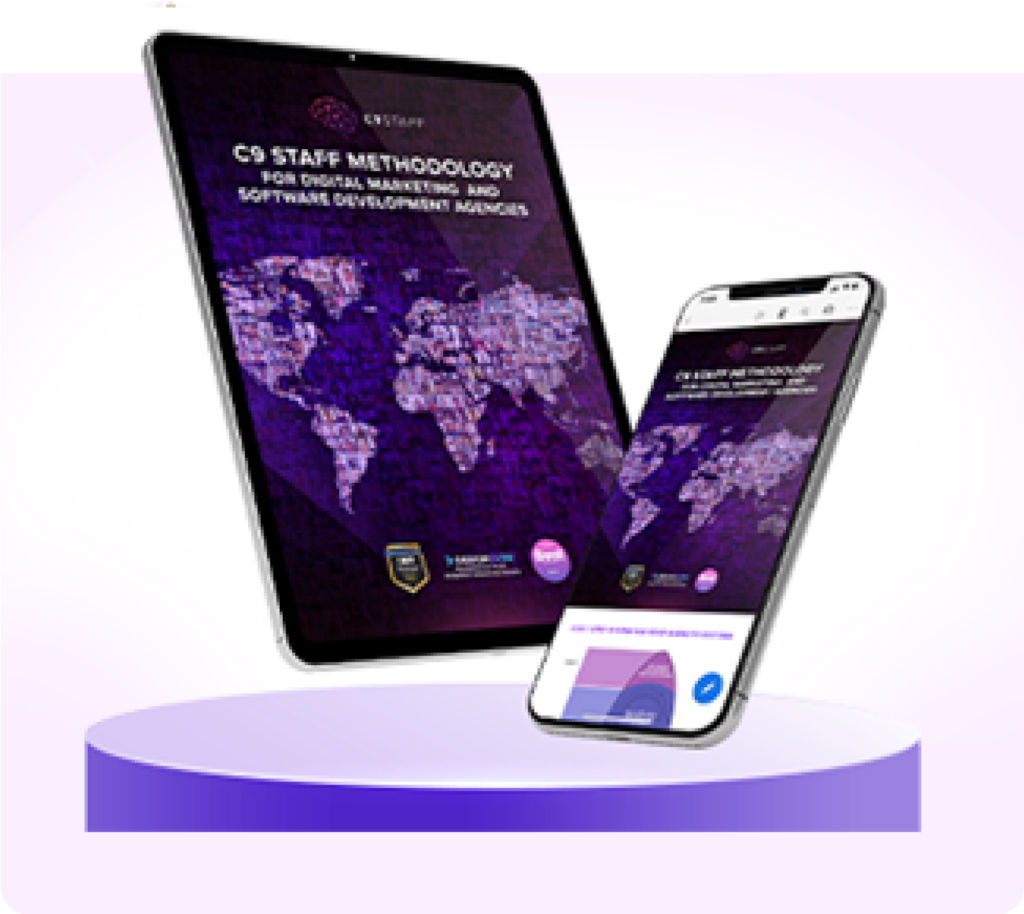UNMATCHED ACCESS TO GLOBAL TALENT
ACROSS 200+ RECRUITMENT CHANNELS

WE DEPLOY STAFF IN THE FOLLOWING CATEGORIES:
Marketing, Creative, Technology, and IT
Digital Marketing Manager
Social Media Manager
Software Developer
SEO Specialist
Content Marketing Manager
Paid Advertising Specialist
IT Project Manager
Cybersecurity Analyst
Email Marketing Specialist
UI/UX Designer
Web Analytics Manager
Database Administrator
Cloud Architect
DevOps Engineer
Growth Hacker
IT Support Specialist
Data Scientist
Mobile App Developer
Video Marketing Specialist
Business Intelligence Analyst
Customer Service and Operations
Customer Service Representative
Call Center Agent
Customer Success Manager
Technical Support Specialist
Help Desk Analyst
Client Services Coordinator
Customer Experience Specialist
Client Support Specialist
Live Chat Support Agent
Account Manager (Customer Support)
Service Desk Analyst
Sales Support Representative
Order Processing Specialist
Billing and Collections Specialist
Retention Specialist
Complaints Handling Officer
Escalation Coordinator
Customer Service Trainer
Product Support Specialist
Loyalty Program Manager
Admin & Back Office
Administrative Assistant
Office Manager
Executive Assistant
Data Entry Clerk
Administrative Coordinator
Receptionist
HR Assistant
Office Administrator
Procurement Specialist
Accounts Payable Clerk
Accounts Receivable Clerk
Payroll Administrator
Inventory Controller
Billing Specialist
Customer Support Administrator
File Clerk
Administrative Secretary
Compliance Officer
Office Clerk
Operations Coordinator
Finance and Legal
Accountant
Financial Analyst
Tax Specialist
Internal Auditor
Bookkeeper
Payroll Coordinator
Compliance Officer
Risk Manager
Budget Analyst
Credit Analyst
Financial Controller
Investment Analyst
Loan Processor
Legal Assistant
Paralegal
Contract Manager
Corporate Counsel
Litigation Support Specialist
Trust Administrator
Regulatory Affairs Specialist
E-commerce and Retail
E-commerce Specialist
Product Listing Coordinator
Order Fulfillment Specialist
Inventory Manager
Marketplace Optimization Specialist
Warehouse Operations Coordinator
E-commerce Marketing Manager
Retail Analyst
Dropshipping Coordinator
Store Manager (Online)
Digital Merchandiser
Logistics Specialist
Customer Retention Manager
Supply Chain Analyst
Visual Merchandiser
Pricing Analyst
Product Data Entry Specialist
Returns and Refund Coordinator
Marketplace Growth Strategist
Brand Manager (E-commerce)
Healthcare and Telehealth
Medical Coder
Telehealth Coordinator
Medical Billing Specialist
Patient Support Representative
Healthcare IT Specialist
Care Coordinator
Claims Processor
Case Manager
Health Information Technician
Medical Records Specialist
Provider Relations Coordinator
Telemedicine Assistant
Medical Scheduling Coordinator
Insurance Verification Specialist
Electronic Health Records (EHR) Specialist
Healthcare Compliance Officer
Health Data Analyst
Remote Nurse Practitioner
Clinical Documentation Specialist
Patient Experience Manager
Don’t see the position or role you’re looking for?
OUR END-TO-END MANAGED SERVICES
1. SOURCING
Access the world’s top 1% of talent with the C9 Staff Talent Network. Our AI-driven tools tap into 400M+ profiles across 200+ job boards, delivering elite candidates perfectly aligned with your needs—efficiently and affordably.
2. RECRUITMENT
Build high-performing teams with precision. C9Staff’s advanced AI sourcing and social media targeting identify top-tier talent, including 1,000+ passive candidates per campaign, ensuring you hire the best before your competitors do.
3. INTERVIEWING
Streamline evaluations with structured, data-driven processes. Our ATS-powered tools offer anonymized screenings, one-way video interviews, and detailed insights, helping you assess candidates quickly, fairly, and accurately.
4. BACKGROUND CHECKS
Thorough, automated background checks ensure every hire is qualified, trustworthy, and compliant with global standards like GDPR and CCPA. We deliver complete peace of mind without delays.
5. HIRING
Effortless hiring starts here. C9Staff handles everything—from offer approvals to onboarding—using integrated collaboration tools for seamless, stress-free transitions that set your team up for success.
6. PAYROLL AND CONTRACTS
Simplify global payroll and contracts with compliance-first solutions. C9Staff automates payroll, ensures local regulation adherence, and removes administrative burdens so you can focus on growth.

HOW TO GET STARTED
SEAMLESS ONBOARDING
Start effortlessly with C9Staff. Choose flexible contracts—annual or month-to-month—and review resumes or interview candidates before committing. Whether building or scaling your team, we ensure a smooth, tailored process.
FREE REPORT
MASTER THE C9STAFF METHODOLOGY
Ready to build your own globally distributed team? Get the blueprint to our success in this 54-page eBook.
Discover the A-to-Z principles we use to find top talent for our clients—from sourcing to seamless team management. Use our proven strategies to create your own high-performing remote workforce.

